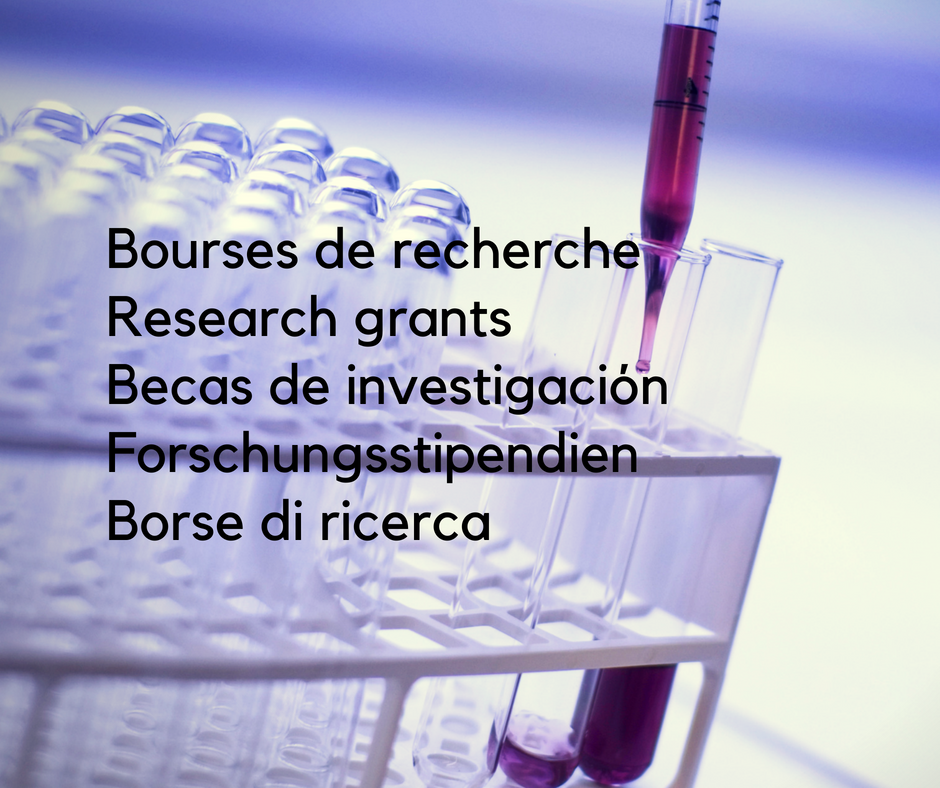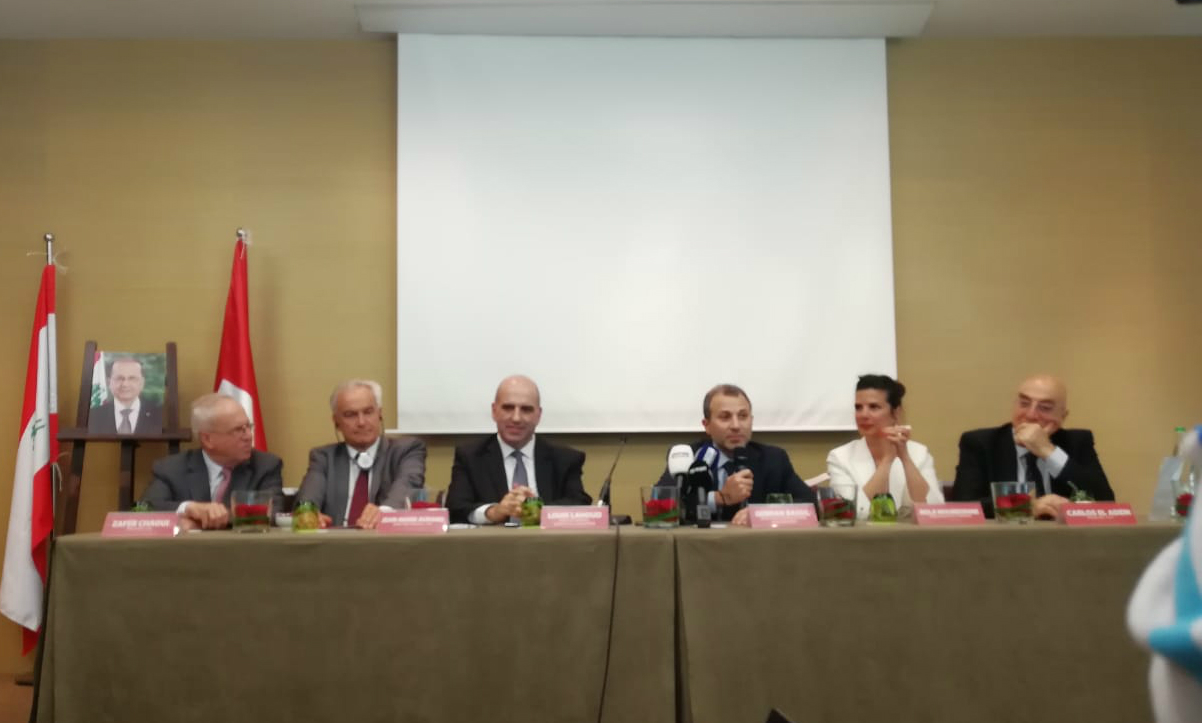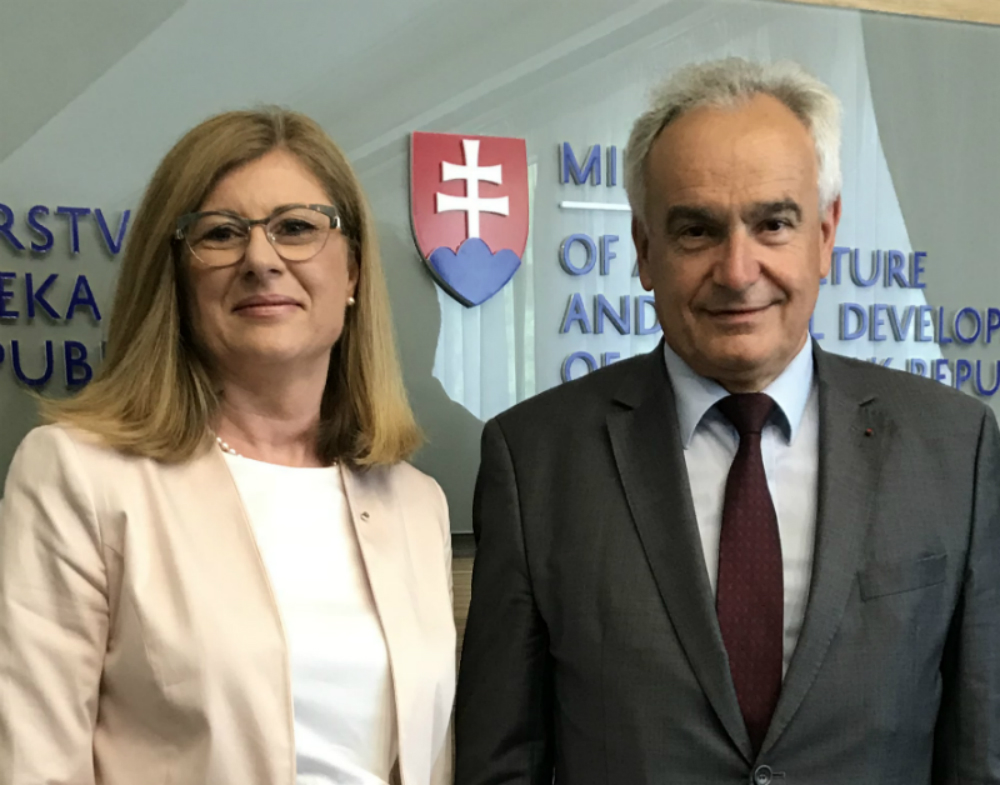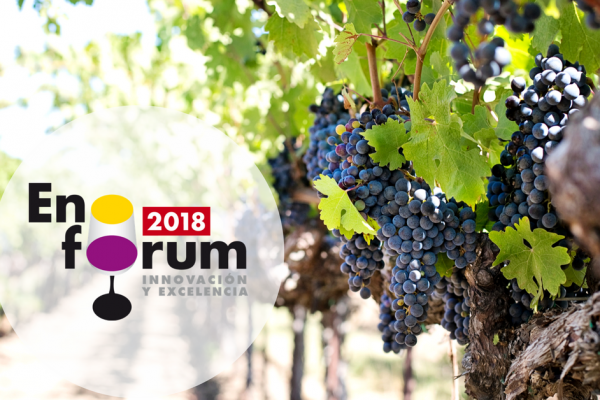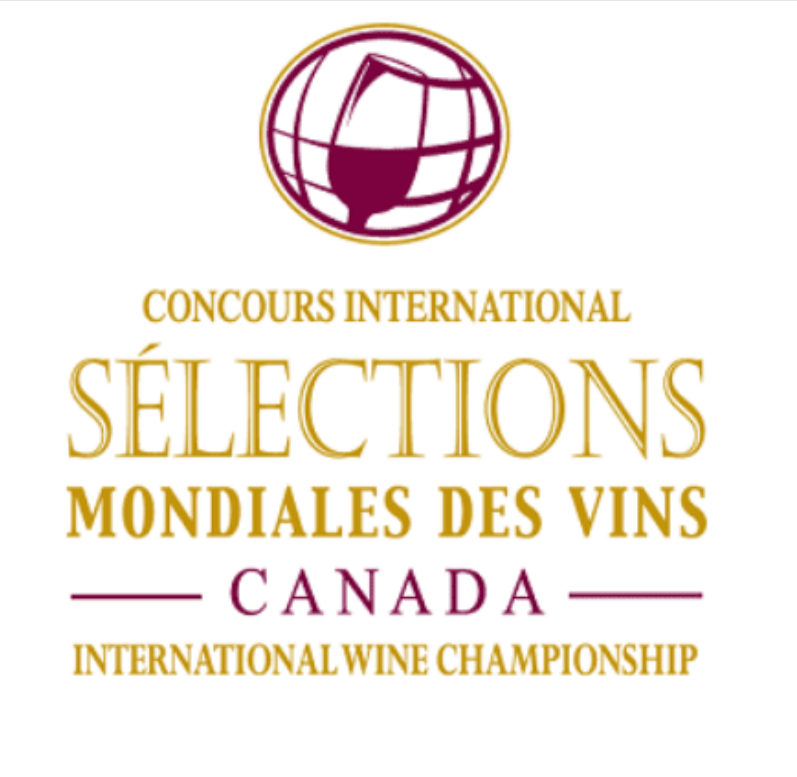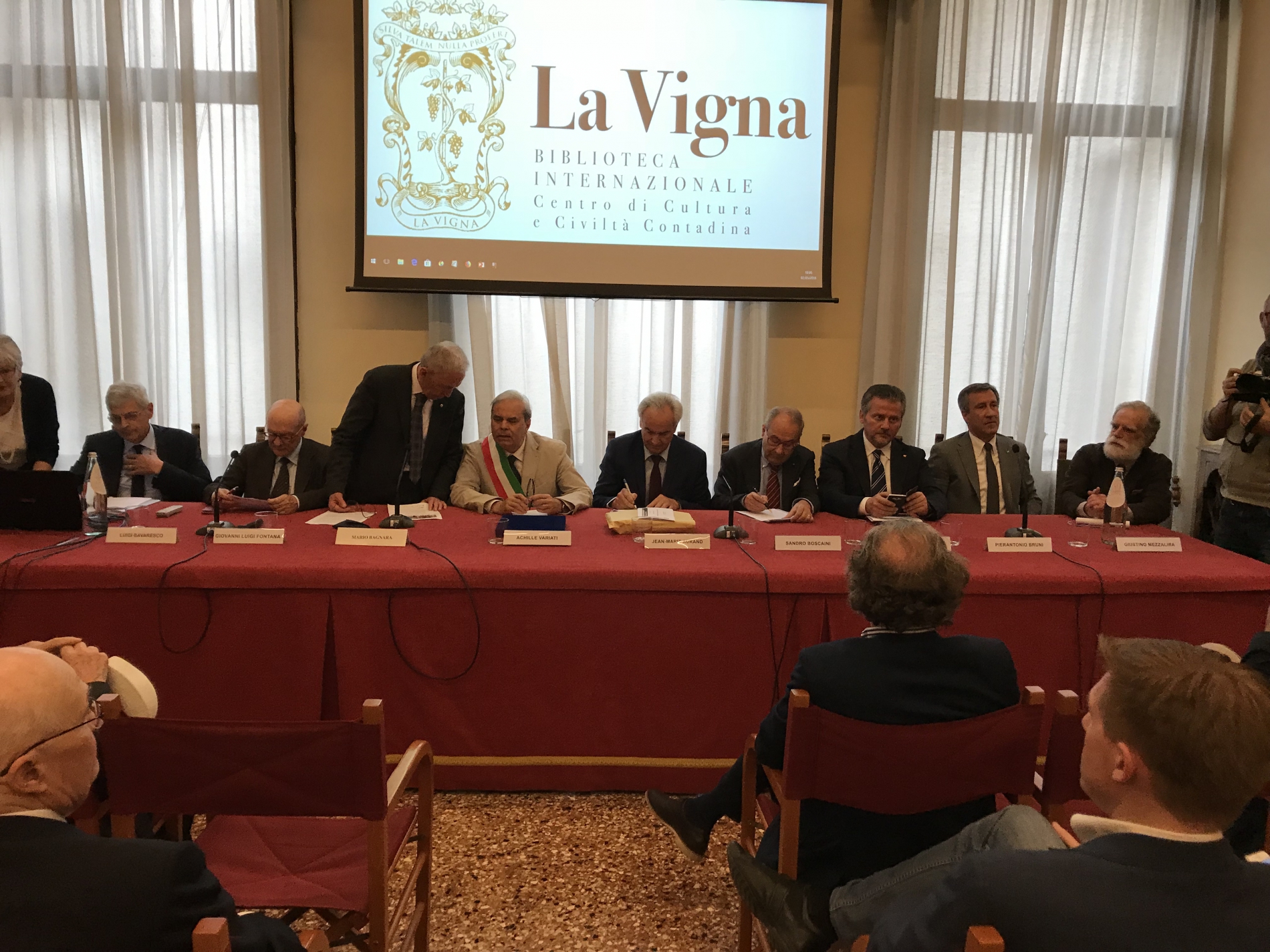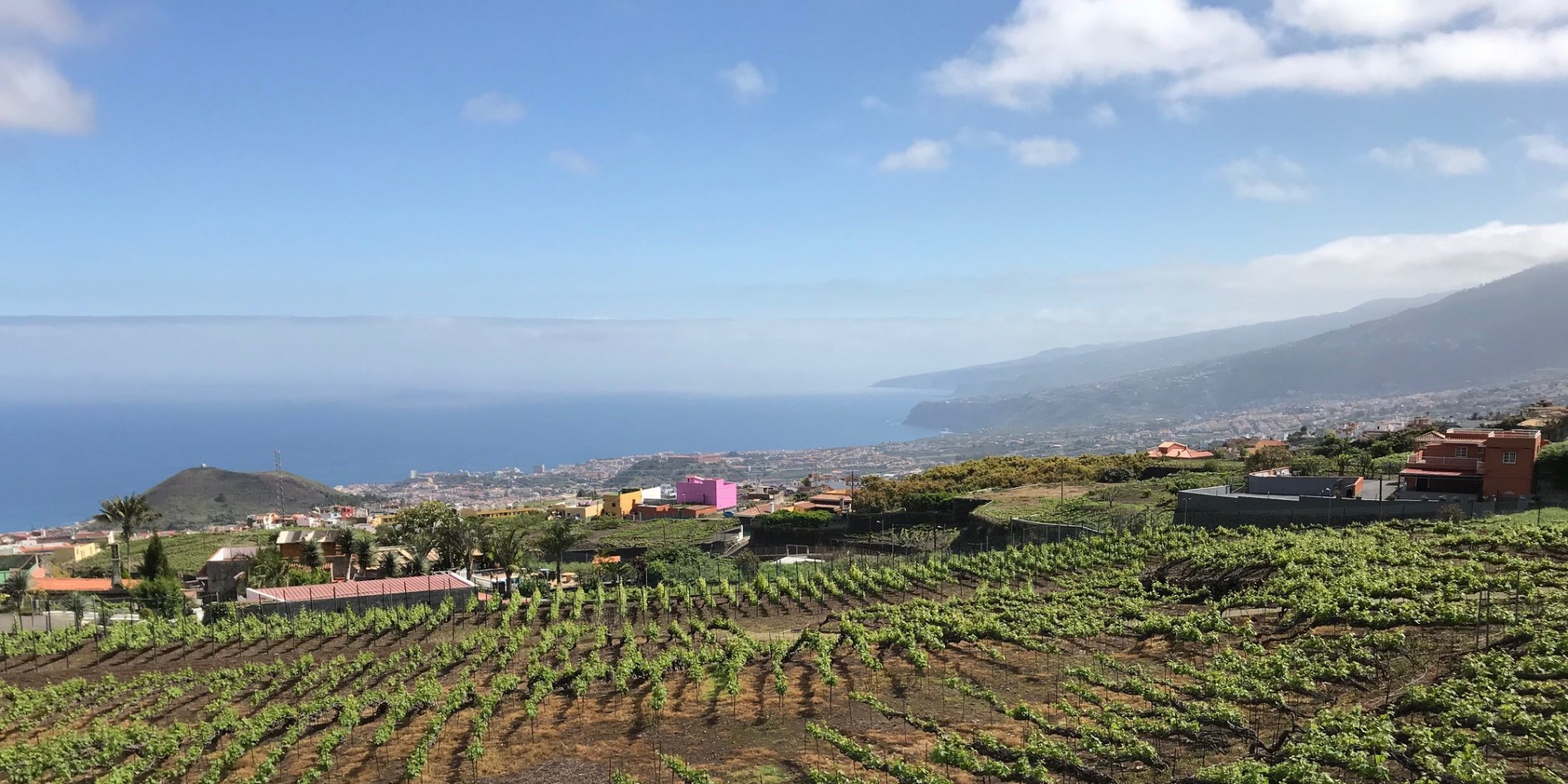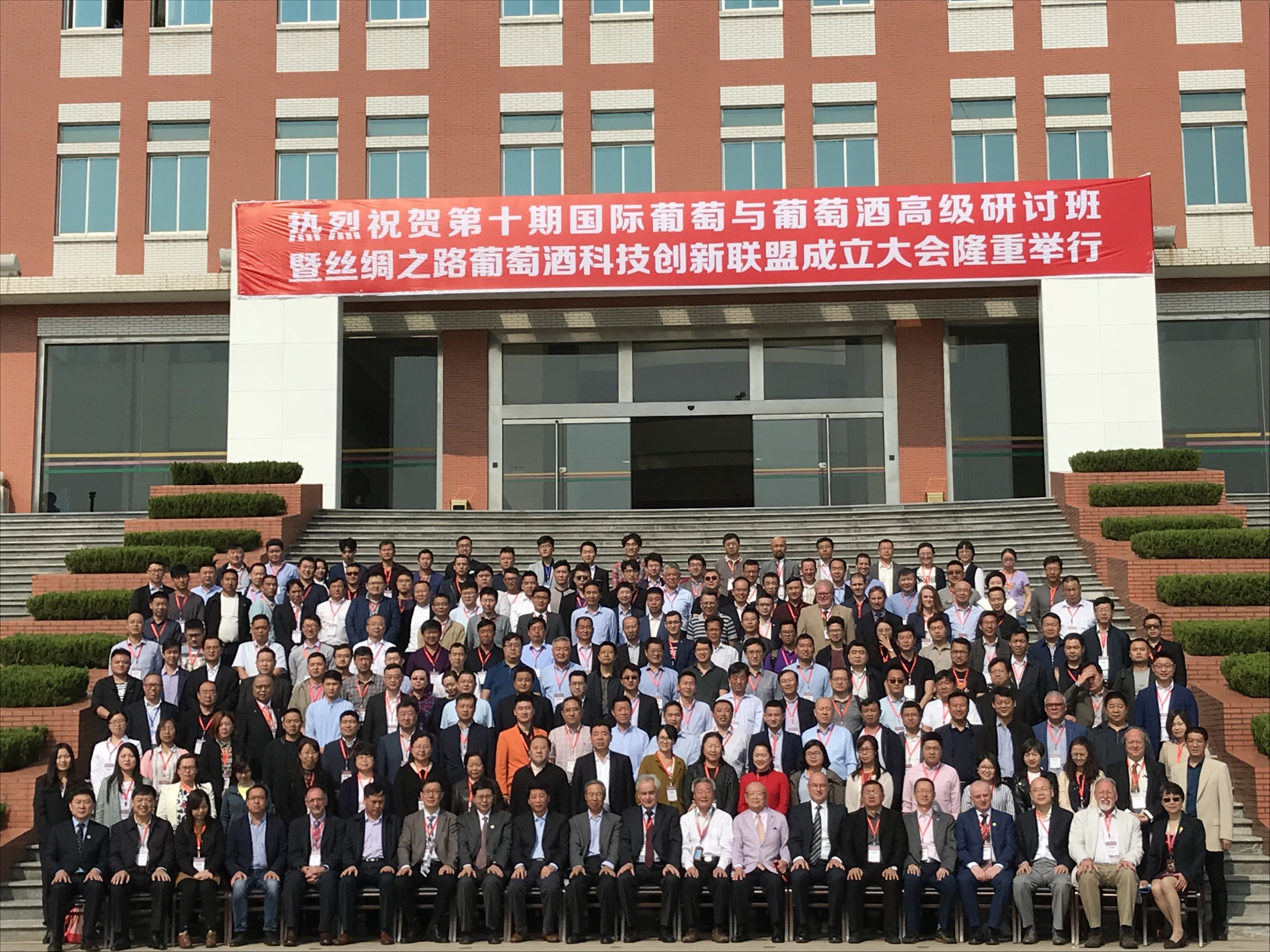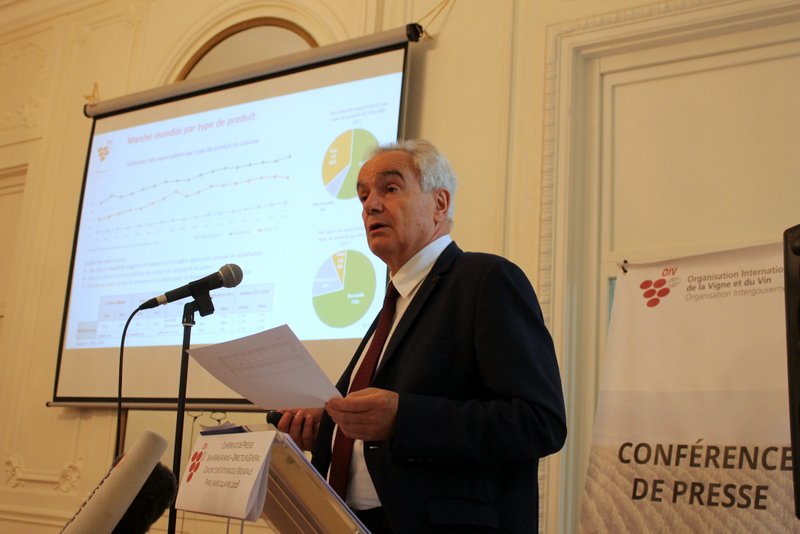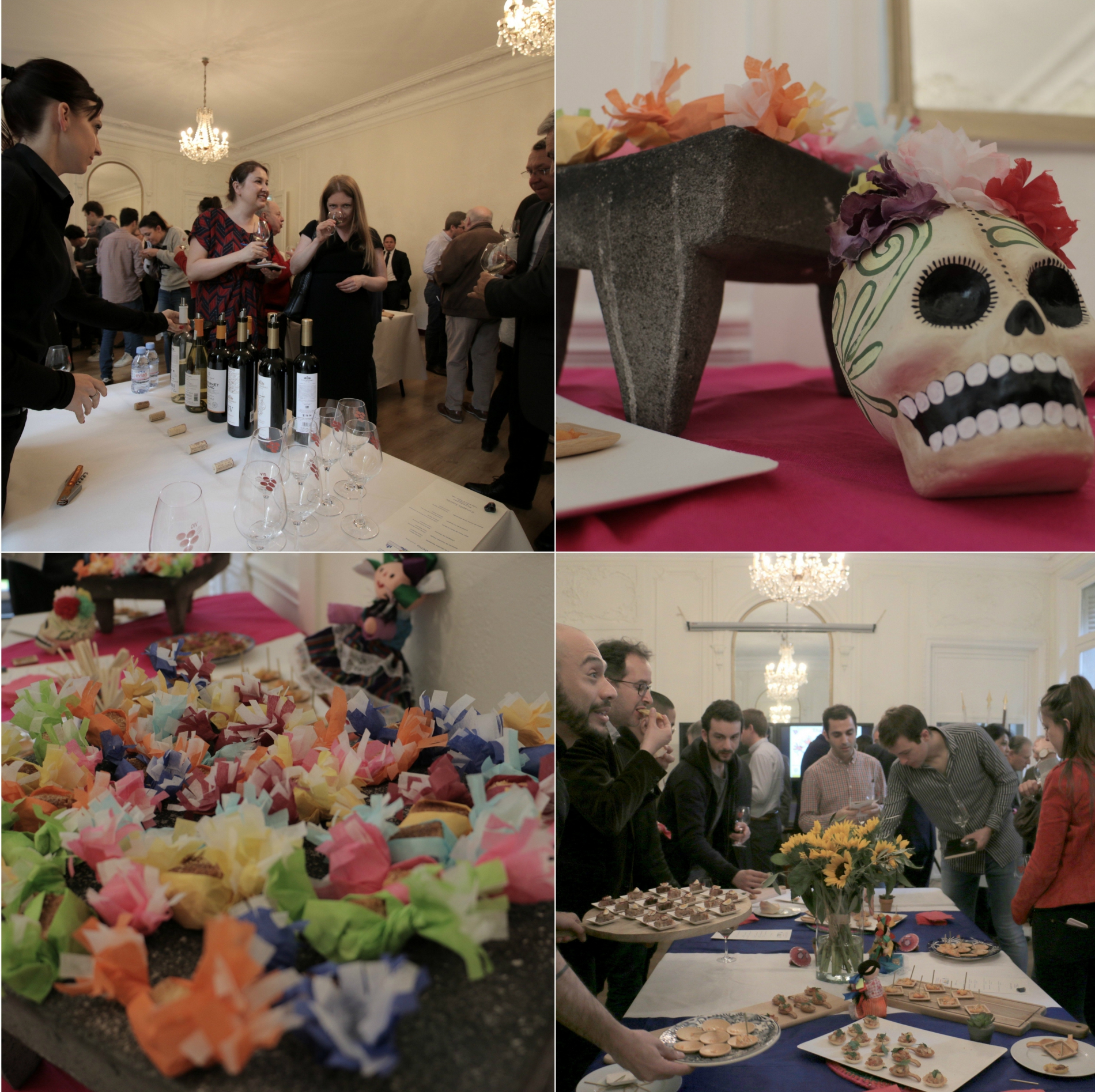20 Jun 2018
2018 - OIV Research grant program in support of priority programme fieldsAll information here.
18 Jun 2018
This event, the fifth of its kind, (the previous iterations having taken place in France, the USA and Germany) brought together 32 business from the country’s different viticultural areas. On this occasion, the Minister for Foreign Affairs, Gebran Bassil, highlighted the dynamism of the Lebanese vitiviniculture industry, with its high-quality wines which are exported around the world.The Director General for Agriculture Louis Lahoud recalled the long history of Lebanese viticulture and emphasized the efforts made by the Lebanese government to promote their wines and support businesses within the industry.In an ever more globalized world market where nearly 45% of wines consumed have crossed at least one border, common promotion makes more sense than ever, as Jean-Marie Aurand made clear in his speech.Lebanon boasts 14,000 ha of vines across the country for an annual production of 80,000 hL, of which more than 20% is exported around the world.This event, the fifth of its kind, (the previous iterations having taken place in France, the USA and Germany) brought together 32 business from the country’s different viticultural areas
14 Jun 2018
This visit was a continuation of the presentation of Slovakian wines which took place in Bordeaux this past 30th November.During an interview at the Ministry of Agriculture, Gabriela Matečná emphasized the dynamic nature of their vitivinicultural industry which is in the midst of a major renewal, accompanied and supported by the government.This process of modernisation relies on the great variety of terroirs, the promotion of indigenous vine varieties and research on the value added through the production of high-quality wines. More than 80% of Slovakian wines bear an AOC or a PGI. “Slovakia is a little country with big wines”, the Minister is proud to say.The Minister Gabriela Matečná with Jean-Marie AurandWithin the framework of research and training development policies, the Minister mentioned the possibility of presenting a Slovakian candidate for the grants distributed by the OIV.Jean-Marie Aurand welcomes the many relationships between the OIV and Slovakia, mentioning among others the role of Ambassador František Lipka as President of the OIV Awards Jury.The diversity of Slovak vitivinicultureDuring the “Viticulture Workshop” organised as part of the National Slovakian Wine Exhibition, the Director General of the OIV made a presentation to the Slovakian Association of Winemakers regarding the Organisation and the state of conditions of the wine industry, highlighting the major changes and primary challenges which future holds.After a presentation on the control and certification system by Ivana Benkovičová (Slovakia’s delegate to the OIV) and an overview of the situation of vitiviniculture in Slovakia by the President of the Winemakers Association, Ondrej Celleng and their general director Jaroslava Kaňuchová-Pátková, the award ceremony of the National Slovakian Wine Exhibition took place. The end of the trip was reserved for visits to three farms which represent Slovakian vitiviniculture in all its diversity.The weekend was also marked by the organisation in Prešov of the 23rd Muvina International Wine Competition, placed under the patronage of the OIV.Slovakia features almost 600 producers growing around 10,000 ha of vines (of a potential 16,000 ha) for a production of about 300,000 hL annually, which is primarily sold within the national market.
04 Jun 2018
One of the leading scientific congresses for the vitivinicultural sector in Europe, Enoforum is above all a meeting place and a forum for debate for all wine and vine industry stakeholders. Over the two days, more than 40 reports were presented on topics of great relevance and general interest.Through a series of lectures, the 2018 event was an opportunity to examine the scientific aspects of important topics, such as:
- water management for grape maturation,
- the active and passive micro-oxygenation of wines,
- how temperature affects wine evolution,
- good practices for bulk and bottled wine trading.
- the release of thiols in fermentation: genetic and nutritional factors,
- bioprotection in viticulture and oenology,
- the microbiological fertility of the soil: from scientific knowledge to vineyard application,
- the use of new treatments with regard to tartaric stabilisation,
- how to manage the negative and positive sides of sulphur compounds in wines,
- new techniques for the vinification of red wines,
- the reactivation of the basic functionalities of oak barrels through regeneration,
- the analytical approach of wineries and laboratories,
- a study on the impact of fermentation conditions on the production of esters by yeasts.
28 May 2018
Placed under the patronage of the OIV, this international wine competition is a member of VINOFED (the World Federation of Major International Wine and Spirits Competitions).It is the biggest major international wine competition in North America.A total of 446 producers from 31 countries presented almost 1820 wines for tasting by some 60 tasters from 15 countries around the world.On this occasion, the Director General of the OIV highlighted the role of these competitions in fostering knowledge and promoting wines within an increasingly globalised market.A total of 446 producers from 31 countries presented almost 1820 wines for tasting by some 60 tasters from 15 countries around the worldWith consumption levels of almost 5 million hectolitres of wine per year, Canada is a significant importer (4.2 million hectolitres in 2016). It is worth noting that the wine market is controlled by public companies (monopolies) in the majority of provinces.Canadian production is experiencing steady growth, reaching 600,000 hL in 2017.Jean-Marie Aurand also shared in the tribute paid to Ghislain K-Laflamme, President of VINOFED and of the Sélections Mondiales des Vins Canada, who passed away in 2017, highlighting his professional qualities placed at the service of the vitivinicultural sector and the traits of his strong personality, which was recognised and valued by all those who knew him.
06 May 2018
Before local officials, representatives of the vitivinicultural sector (including the President of the Italian Federation of Industrialists, Producers, Exporters and Importers of Wines [FEDERVINI]), and scientists and experts in the sector, Jean-Marie Aurand – after a presentation of the OIV – gave a panorama of global vitiviniculture, highlighting major trends before discussing the major economic, environmental, social and societal issues for the future. Also present at this event were Professor Luigi Bavaresco (on whose initiative the Conference was created), Vittorino Novello, Eugenio Pomarici and Honorary OIV President Professor Mario Fregoni. During this visit, the Director General of the OIV went to see the International Library "La Vigna", a veritable institution whose collection of books – with over 60,000 works, 20,000 of which are devoted to vitiviniculture – is just as remarkable in number as it is in its antiquity and diversity.Founded 50 years ago at the end of the 1960s by Demetrio Zaccaria, a Vicenza entrepreneur, who started this collection out of passion, the International Library "La Vigna" is now an institute of specialised documentation that promotes cultural activities and organises conferences and events focused on agriculture, viticulture and the diffusion of rural culture.During this visit, the possibility of establishing collaborations between the International Library "La Vigna" and the OIV was broached by President Mario Bagnara and the Director General of the OIV.Finally, the day of 3 May was devoted to visiting vineyards in Verona province, in the heart of the Valpolicella designation, where the OIV Director General was hosted by Sandro Boscaini, the President of FEDERVINI, at his company, the Masi Group.
01 May 2018
Organised by the Center for Research, Study, Safeguarding, Coordination and Valorisation of Mountain Viticulture (CERVIM), with the cooperation of the Government of the Canary Islands and under the high patronage of the OIV, this Congress brought together the representatives of around 15 countries, focusing on the theme of ‘Heroic viticulture: from grape to wine through sustainability and quality'.The Congress comprised four technical sessions:
- mechanization and precision viticulture for steep-slope vineyards,
- examples of heroic viticulture and their sustainability and identitary landscape elements,
- oenological practices for heroic viticulture valorisation,
- the biodiversity value of wine in heroic viticulture.
- slopes of over 30%,
- altitude higher than 500 metres above sea level,
- viticultural systems on terraces and embankments,
- viticulture on small islands.
29 Apr 2018
Organised by the College of Enology of Northwest A&F University with the support of the China Alcoholic Drinks Association (CADA), the Chinese National Research Institute of Food and Fermentation Industries and local authorities, this event brought together over 250 participants: producers, industry representatives, academics and experts. Several Chinese and also foreign speakers gave presentations in different workshops focusing on the following themes: viticultural techniques, wine and terroir, the construction of wine brands, wine and the internet.Placed under the patronage of the OIV, this Symposium was an opportunity for Jean-Marie Aurand to give a presentation of the OIV and its missions together with a panorama of the state of the global vitivinicultural sector, highlighting the major issues for the future.10th International Symposium on Viticulture and Enology in Yangling, in the Chinese province of Shaanxi.The Director General of the OIV also called for the full accession of China to the OIV at a time when Chinese viticulture is experiencing unprecedented growth, both with regard to table grape production (the top producing country) and wine production and consumption (8th in the world for production and 5th for consumption).10th International Symposium on Viticulture and Enology in Yangling, in the Chinese province of ShaanxiFinally, a part of the Symposium was dedicated to a forum on the transposition to the wine sector of the initiative undertaken in connection with the silk route.
22 Apr 2018
OIV's April 2018 Press ConferenceThe Director General of the OIV, Jean-Marie Aurand, presented information on the potential wine production, assessment of the harvest, and state of the market and international trade in 2017 at the Organisation's headquarters in Paris on 24 April.
- With 7.6 mha in 2017, the size of the global area under vines appears to have stabilised.
- Wine production was at 250 mhl in 2017. This was a historically low production year, with a decline of 8.6% compared with the previous year, explained in particular by unfavourable climate conditions within the EU (-14.6% compared with 2016).
- A total of 243 mhl of wines were consumed in 2017. Consumption had almost stabilised following the 2008 economic crisis, with a positive trend over the past 3 years.
- World wine trade: there was a very positive balance, both in terms of volume (108 mhl, +3.4% compared with 2016) and value (30bn EUR, +4.8% compared with 2016).
17 Apr 2018
Mexico, which joined the OIV in 2016, embarked upon a bill in 2017 for the development of its national vitivinicultural industry, which is expected to be adopted several weeks from now. It was at the time of introduction of this bill and during the OIV Director General's visit to the Mexican Senate that the Undersecretary of Agriculture announced his intention for his country to organise a presentation of Mexican wine in Paris.First Mexican wine tasting at the OIV headquarters It was with great pleasure that Jean-Marie Aurand welcomed this first tasting of Mexican wines at the OIV headquarters, highlighting the strong and rapid growth of the sector and the synergy between the Mexican professional and public sectors. Mr Guillermo Garza García, Director of PROMÉXICO, representing H.E. Mr Juan Manuel Gómez Robledo, Mexican Ambassador to France, was proud to be able to present, with the Mexican Wine Council, a selection representative of the high quality of Mexican wines.Yann Juban, Assistant to the Director General of the OIV; Gabriel Padilla, Director of the Mexican Wine Council; Guillermo Garza García, Director of PROMÉXICO; Jean-Marie Aurand, Director General of the OIV; Francisco Rodríguez, Oenologist at Casa Madero A production of 260,000 tonnes of table grapes per yearWith a production of 260,000 tonnes of table grapes per year, an increase of 25% since the year 2000 with more than 60% exported, Mexico is becoming a significant player on the world market. Its production is well rewarded as it arrives on the market out of season (May to July). As for raisins, since 2000, production has increased by 225% to reach 14,000 tonnes in 2015. Driven by strong domestic demand (an annual increase in consumption of 12% for the last 10 years), wine production has experienced remarkable growth. A large number of wine companies established in 11 Mexican states produce nearly 200,000 hectolitres of a wide variety of high-quality wine every year.Three Mexican regions representedMr Gabriel Padilla, Director of the Mexican Wine Council, presented historical, geographical and economic data on the sector, and this data was illustrated by oenologists from wineries in the regions of Lower California (Monte Xanic), Coahuila (Casa Madero) and Aguascalientes (Vinícola Santa Elena). The wines were presented to 100 or so professionals, amongst different wine-tapas pairings illustrating the perfect marriage between wines of character and recognised gastronomy.It was with great pleasure that Jean-Marie Aurand welcomed this first tasting of Mexican wines at the OIV headquartersTasting of Mexican wines at the OIV headquarters. April 2018
